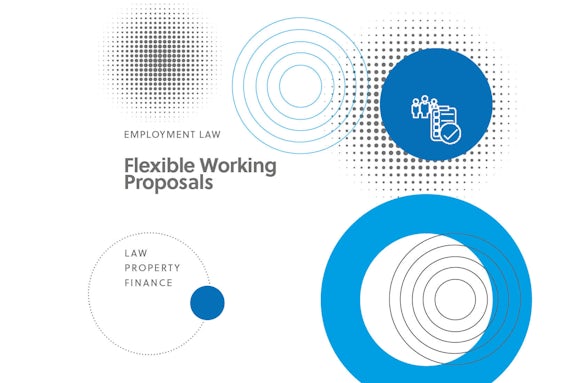
By Sarah Feeney
May 9, 2025

Earlier this week the government published its proposal to update flexible working laws.
In a survey conducted by CIPD last year, nearly half (46%) of employees said they did not have access to flexible working arrangements as part of their role. Whilst the Covid-19 pandemic undoubtedly increased access to flexible working for employees, many of those employees who had become accustomed to working from home during lockdown are now struggling to adjust to being back in the workplace. It has been argued by critics that further government intervention was required in order to make flexible working the default position.
In light of this new government response, employers will be keen to understand what the new legislation proposes and how it might affect their business. The good news is that, notwithstanding the government’s attempt to make flexible working more easily available for employees, the proposed change to the law does not remove the current wide scope for employers to refuse any such requests.
Currently, the right to request flexible working arrangements is only available to employees with 26 weeks’ continued service, however, the proposed legislation is set to make this right available from day one of employment.
In addition, employees will be allowed to make two flexible working requests rather than one within a 12 month period, with the response time for employers to respond to these requests reducing to two months rather than three.
It is proposed that employer may be required to discuss alternatives to any employee request. This would appear to mean that in situations where an employer intends to reject an employee’s request, it must discuss with the employee whether there are alternative forms of flexible working available. It is not clear at the present time whether this will be a statutory requirement giving rise to a cause of action or simply guidance for employers.
Another proposed change that employers should be aware of is that the procedure for requesting flexible working will be simplified for employees by removing the requirement to set out how the effects of their request might impact their employer.
Alongside these proposals, the government also announced plans to eliminate exclusivity clauses for low paid workers. The intention of this change is to allow employees in lower paid roles the freedom to work for more than one employer.
Employers may be comforted to hear that the new proposals make no change to the established list of eight reasons employers have to refuse a request for flexible working. As a consequence, employers will retain the same significant discretion to reject requests as before and the focus will be on following the revised procedure to avoid risk of employee claims.
It is our view that the new proposals will have very little impact in real terms.
While employers should prepare for a likely increase in flexible working requests and be equipped to deal with the modified procedural requirements, it is imperative that employers carefully consider each request made and the potential for a discrimination claim based on one of the protected characteristics.
In terms of staff morale and recruitment, employers should consider how these new proposals may inadvertently impact employee relations and the ability to source good quality employees to the business. With the potential influx of flexible working requests on the horizon, there may be direct and indirect benefits to employers of deciding to afford greater flexibility in response to these requests.
Should employers be viewed as adopting an unreasonable approach to flexible working requests, they risk of a disengaged and demotivated workforce and a possible reduction in overall business productivity.
One key point for employers will be to how to strike a balance when dealing with any flexible working requests between trying to appease and retain its valued employees and do what is best for the business in a highly competitive job market.
In conclusion, while these new government proposals appear to make flexible working more easily available to employees, employers need not be overly concerned. Flexible working will continue to be on a ‘right to request’ basis and with employers still being afforded the same discretion to reject any such requests, at this stage, not much has changed.
For more information on the above please contact Erin Buchanan, Trainee Solicitor, email EBuchanan@gilsongray.co.uk / +44 (0)141 286 2564 or Graham Miller, Partner – Employment Law email gmillar@gilsongray.co.uk/ +44 (0)141 530 2021

Graham has built up an enormous loyalty with his clients and he is often called upon to provide a pragmatic and commercially sensible view on the running of his clients’ businesses.